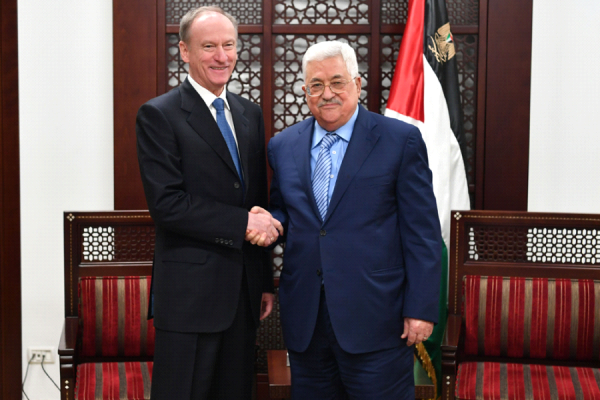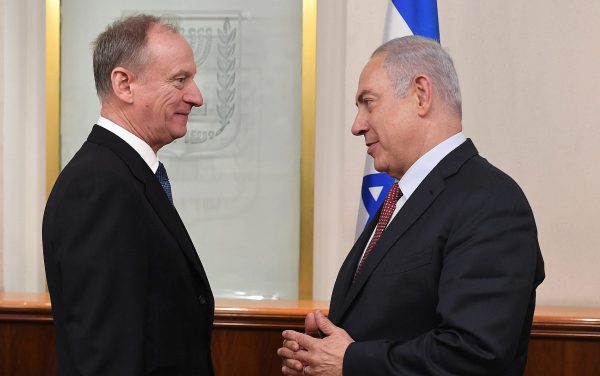
A high-ranking Russian delegation held talks with Palestinian leaderships in Ramallah on Friday to avoid an “inevitable” attack planned by Tel Aviv against Iranian missile factories hidden in southern Lebanon and Syria.
The Russian initiative followed talks with Israeli officials, who expressed their fears from the spread of the Iranian power in the region.
Informed sources said that late last month, Israeli Prime Minister Benyamin Netanyahu discussed with Russian President Vladimir Putin in Moscow “the continuous supply of arms to Hezbollah, hinting about Israel’s decision to attack Iranian arms factories and Hezbollah positions in Syria and Lebanon.”

sources said that based on this information, a Russian delegation, including National Security Council Secretary Nikolai Patrushev, was tasked to “carefully study the Israeli fears from Hezbollah and Iran in Syria, particularly after Tehran rejected Moscow’s requests to pull out its forces from south Syria.”
US Defense Secretary James Mattis said the US has no evidence that the chemical agent sarin has ever been used by the Syrian government in Damascus’ Ghouta. However, Mattis said his country was looking into information obtained from other groups; NGOs and fighters on the ground.
“We are looking for evidence of it,” he said, adding that the US is now “even more concerned about the possibility of sarin use.”
For its part, Moscow accused Washington of working to undermine any chances of political settlement in Syria by renewing claims of the “chemical.”
France said on Friday it was “deeply concerned” that Syria’s government was flouting its pledges to stop using chemical weapons.
Separately, UN Secretary General Antonio Guterres said that the peace operation conducted by his envoy to Syria Staffan de Mistura, has reached a fruitful phase.
Speaking about the Syrian political process and the Russia-sponsored Congress of the Syrian National Dialogue in Sochi, he said that there is an understanding that the Constitutional Committee should at the very least comprise the Government, opposition representatives in the intra-Syrian talks in Geneva, Syrian experts, civil society, independents, tribal leaders and women.
It would also include adequate representation of Syria’s ethnic and religious components.

Leave a Reply
You must be logged in to post a comment.